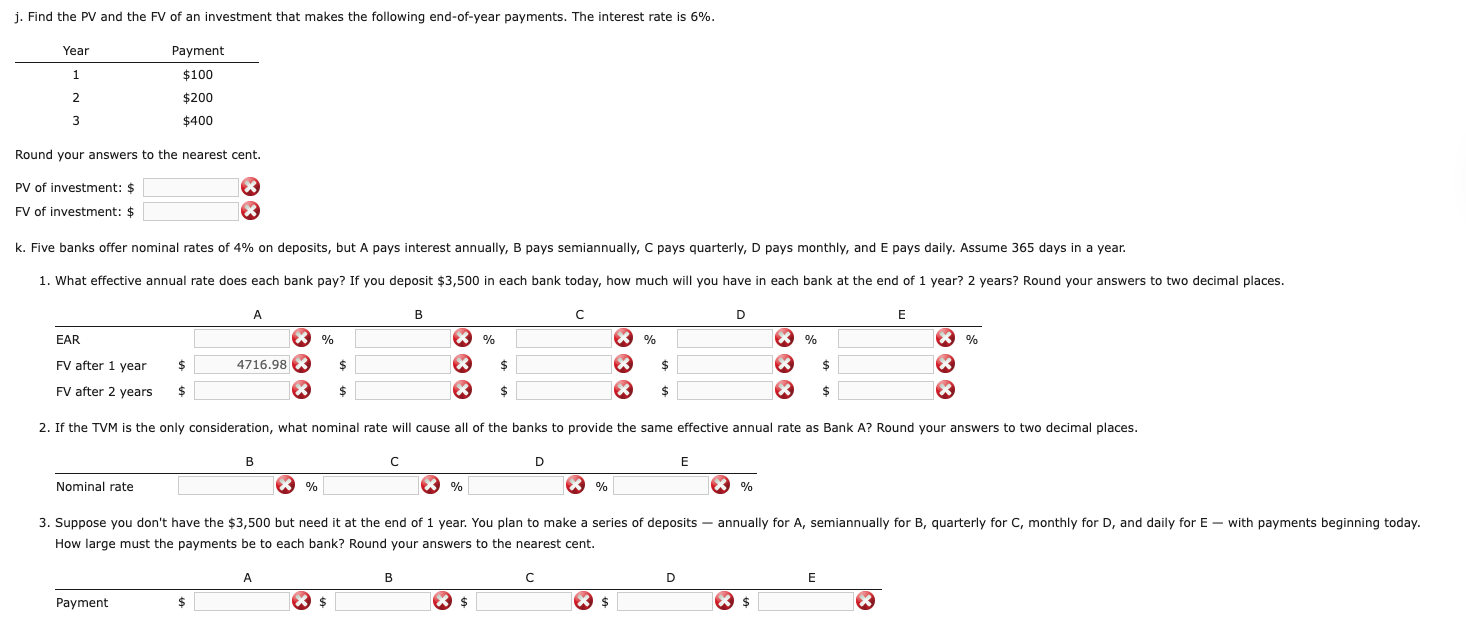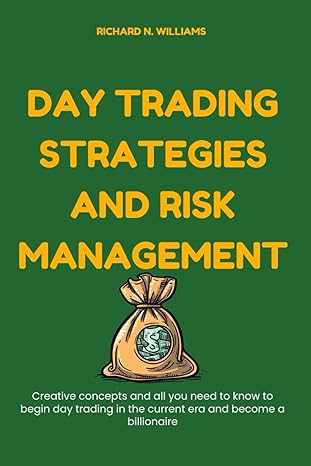Time value of money , need help!


f. Find the PV of an ordinary annuity that pays $1,000 each of the next 6 years if the interest rate is 12%. Then find the FV of that same annuity. Round your answers to the nearest cent. X PV of ordinary annuity: $ FV of ordinary annuity: $ 1973.82 g. How will the PV and FV of the annuity in part f change if it is an annuity due rather than an ordinary annuity? Round your answers to the nearest cent. PV of annuity due: $ FV of annuity due: $ h. What will the FV and the PV for parts a and c be if the interest rate is 8% with semiannual compounding rather than 8% with annual compounding? Round your answers to the nearest cent. FV with semiannual compounding: $ PV with semiannual compounding: $ i. Find the annual payments for an ordinary annuity and an annuity due for 12 years with a PV of $1,000 and an interest rate of 6%. Round your answers to the nearest cent. Annual payment for ordinary annuity: $ X Annual payment for annuity due: $ j. Find the PV and the FV of an investment that makes the following end-of-year payments. The interest rate is 6%. Year Payment $100 1 $200 2 2 3 $400 Round your answers to the nearest cent. . PV of investment: $ $ FV of investment: $ k. Five banks offer nominal rates of 4% on deposits, but A pays interest annually, B pays semiannually, C pays quarterly, D pays monthly, and E pays daily. Assume 365 days in a year. 1. What effective annual rate does each bank pay? If you deposit $3,500 in each bank today, how much will you have in each bank at the end of 1 year? 2 years? Round your answers to two decimal places. A B C D E E EAR X % X % % % X % % FV after 1 year $ 4716.98 X $ x $ X $ $ FV after 2 years $ x $ x $ x $ $ x $ 2. If the TVM is the only consideration, what nominal rate will cause all of the banks to provide the same effective annual rate as Bank A? Round your answers to two decimal places. B D E Nominal rate X% % X % % X% 3. Suppose you don't have the $3,500 but need it at the end of 1 year. You plan to make a series of deposits annually for A, semiannually for B, quarterly for C, monthly for D, and daily for E with payments beginning today. How large must the payments be to each bank? Round your answers to the nearest cent. A B D E Payment $ X $ X $ X $ X $ X








